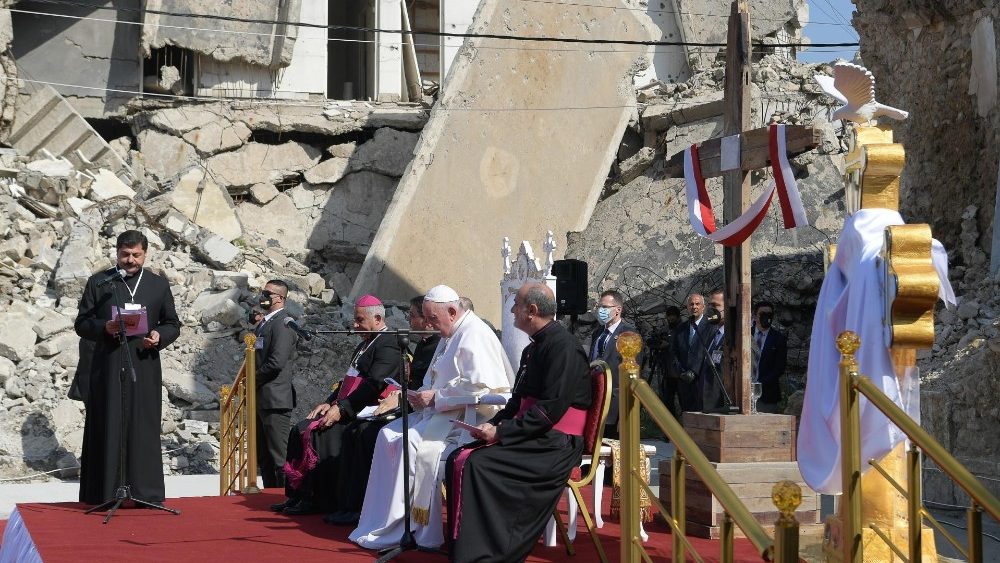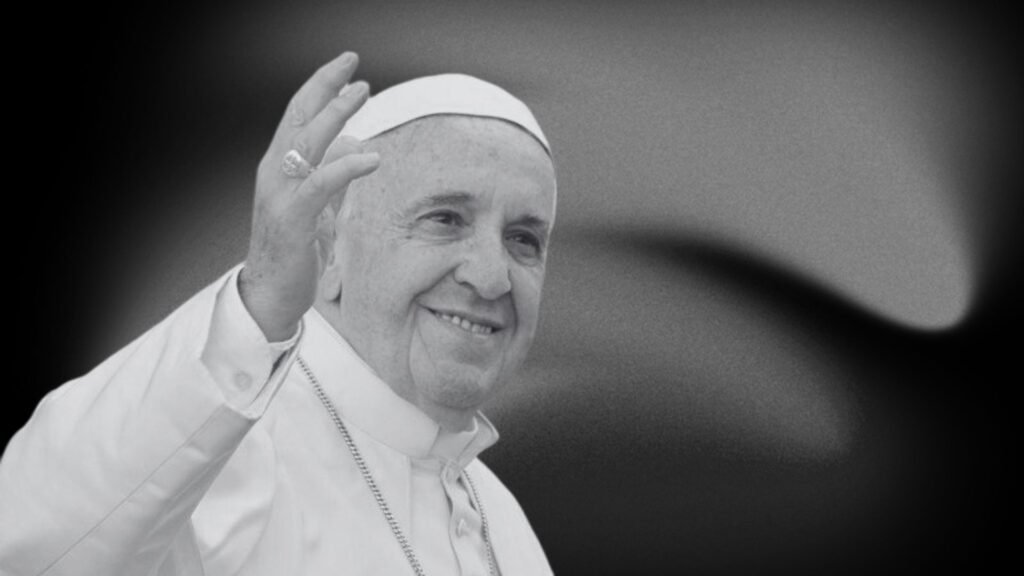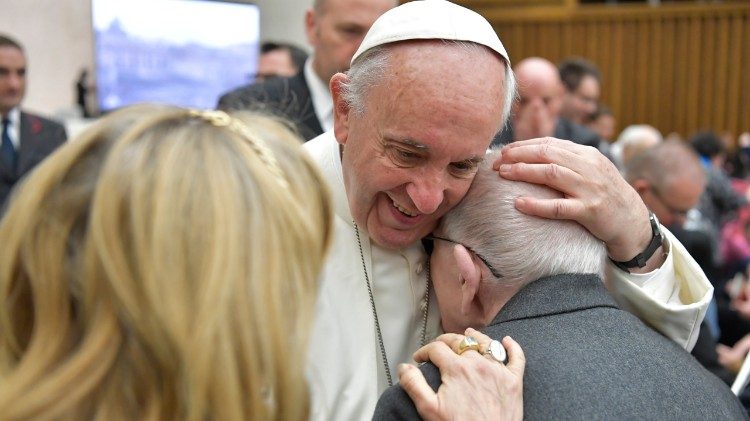Religious Freedom Is Denied in 62 States of the World
Aid to the Church in Need Presents Its Report. Bishop Dabire’s Testimony on Burkina Faso

Presented in a video-conference was the Report on Religious Freedom in the World, which the Pontifical Foundation Aid to the Church in Need (ACN) publishes every two years. The dossier has reached its 15th edition. The document attests that in one nation out of three there are serious violations of religious freedom. According to the study, this fundamental right was not respected in 62 of the 196 sovereign countries (31.6% of the total) in the two-year period 2018-2020. There are 416 million Christians threatened by persecution.
Nine New Countries
Attending the presentation, in addition to Cardinal Mauro Piacenza and Thomas Heine-Geldern, President and Executive President, respectively, of ACN International, were two direct witnesses of religious persecution: Asia Bibi, in connection from Canada, where she lives after her release, and Monsignor Laurent B. Dabire, Bishop of Dori and President of the Episcopal Conference of Burkina Faso and of Niger. Burkina, in fact, is one of the new countries entered in the sad classification of the 26 nations in which persecution is suffered.
The others are six in Africa (Cameroon, Chad, the Comoros, the Democratic Republic of Congo, Mali and Mozambique) and two in Asia (Malaysia and Sri Lanka). “The main cause is the progressive radicalization of the African Continent, especially in the Sub-Saharan and Eastern areas, where the presence of Jihadist groups has increased notably,” explained the Director of Aid to the Church in Need, Alessandro Monteduro.
The Drama of Burkina Faso
Well noted, unfortunately, is the situation in Pakistan, recalled by Asia Bibi. However, the drama of persecution is being extended to many other countries, among them, Burkina Faso. “The terrorist attacks began in 2015. They became a real avalanche that struck in the Sahel and then advanced in the rest of the country,” explained Monsignor Dabire. “At the beginning it was a phenomenon of aggression whose reasons were unknown. Then it was understood that it was groups from Mali, Niger, some from Libya . . . we found ourselves in the storm, with the destruction of houses, massacres of civilians, destruction of schools and every symbol of the State and of tolerance.”
A phenomenon that “manifested itself as a negation of religious freedom not only for Christians. Also for Muslims who did not share this way of acting: they were hunted, converted to radical Islam or killed. There is no real plan of persecution but the terrorists do not want peaceful coexistence, the inter-religious dialogue that Burkina experienced. In their advance Christians were denied the right to live in peace, to profess their faith and not convert to other faiths. It’s a revolution vis-à-vis the previous peaceful coexistence.”
Half the Parishes Are Closed
In the diocese of Dori, out of six parishes three are closed. “For four years we cannot go beyond small urban centers, we cannot exercise our religious freedom. For a couple of months, we see a little normalization, the killings have decreased; there are fewer displaced and we try to bring material and spiritual aid. If the fundamentalists get the better of it, it will be the end for the other religions and of the Church’s presence but we don’t think this will happen.”
An Islamist Network
Violations of religious freedom were verified in 42% of African nations. Burkina Faso and Mozambique represent two striking cases. “However, this radicalization is not limited to Africa. The Report describes the consolidation of a transnational Islamic network that extends from Mali to Mozambique, from the Comoros in the Indian Ocean to the Philippines in the South China Sea, whose purpose is to create a so-called trans-continental caliphate,” stressed Monteduro.
The Repression Uses Technology
The Report reveals a new frontier: the abuse of digital technology, of cyber networks, of mass surveillance based on artificial intelligence (AI), and on facial recognition technology. The objective is to ensure greater control with discriminatory ends. This phenomenon is evident especially in China, where the Communist Party is repressing religious groups. To this end, it uses 626 million surveillance cameras with AI technology and smartphone sensors. Jihadist groups are also using digital technology to foster radicalization and to recruit new terrorists.
In 42 countries (21% of the total), to abandon or change one’s religion can spell serious legal and/or social consequences, which go from family ostracism to the death penalty. ACN’s research also laments the increase of sexual violence used as a weapon against religious minorities. Increasing, in particular, are crimes against adult women and minors who are kidnapped, raped and constrained to repudiate their faith and to embrace forcefully that of the majority.
67% of the world’s population, about 5.2 billion people live in nations in which serious violations of religious freedom are verified. Among them are those that are the most populous, such as China, India and Pakistan.
The religious persecution of authoritarian governments (the reference is especially to China and North Korea) has also intensified. The promotion of ethnic or religious supremacy in some Asian nations of Hindu or Buddhist majority has contributed to increase oppression to the harm of the minorities, often reducing the components to the level of second-class citizens. India represents the most striking case, but such policies are applied also in Pakistan, Nepal, Sri Lanka and Myanmar.
“Educated Persecution”
Registered in the West, then, is the spread of an “educated persecution,” as Pope Francis defined it to describe the conflict between the new cultural tendencies and individual rights to freedom of conscience, a conflict which has caused religion to be relegated to the restricted perimeter of places of worship.
The Pandemic’s Impact
The Report also makes reference to the profound impact of the COVID-19 pandemic on the right to religious freedom. In face of such an emergency, the governments have considered it necessary to impose extraordinary measures, applying in some cases disproportionate limitations to religious worship, especially if compared with those imposed on other secular activities. In some countries, as for instance Pakistan and India, humanitarian aid was denied to religious minorities. The pandemic is used especially on social networks as a pretext to stigmatize some religious groups accused of having spread or downright caused the pandemic.
According to Alfredo Mantovano, President of ACN-Italy, “because of the pandemic we are used to reasoning and operating in terms of red zones, orange -zones, and so on, according to the intensity of the contagion. For 22 years, the Report has been using different intensities of the colors to make visibly clear the intensity of religious persecution in the world. However, in the Report the typology of commercial exercises that can be open or that must close does not correspond to the colors.”
“The restrictions pertain to the exercise of a fundamental human right, of places in which the death sentence affects those that show in public signs of their faith, and those that are the tragic theater of the serial or planned use of sexual violence in dealing with young women culpable of belonging to a religious community to be cancelled,” added the President of ACN-Italy.
The Indifferent West
“The Report is an instrument to overcome indifference. If in fact in many places faith is repressed with violence, in others in which there is talk of rights, and elevated often to the rank of rights are those that are only desires, there is an incredible indifference that ignores the reality of millions of victims” of repression, he concluded. The reference to the secularized West is evident.
#StandUpforReligiousFreedom
VIEW THE FULL TEXT OF THE RFR 2021 HERE: https://acninternational.org/religiousfreedomreport
Related

Saying Goodbye to Francis
Exaudi Staff
26 April, 2025
2 min

The Family: A School of Love, Forgiveness, and Hope
Laetare
25 April, 2025
3 min

Pope Francis: Leadership That Transforms Through Service
Javier Ferrer García
25 April, 2025
4 min

The heart of the Church beats between mourning and hope
Exaudi Staff
24 April, 2025
2 min
 (EN)
(EN)
 (ES)
(ES)
 (IT)
(IT)

